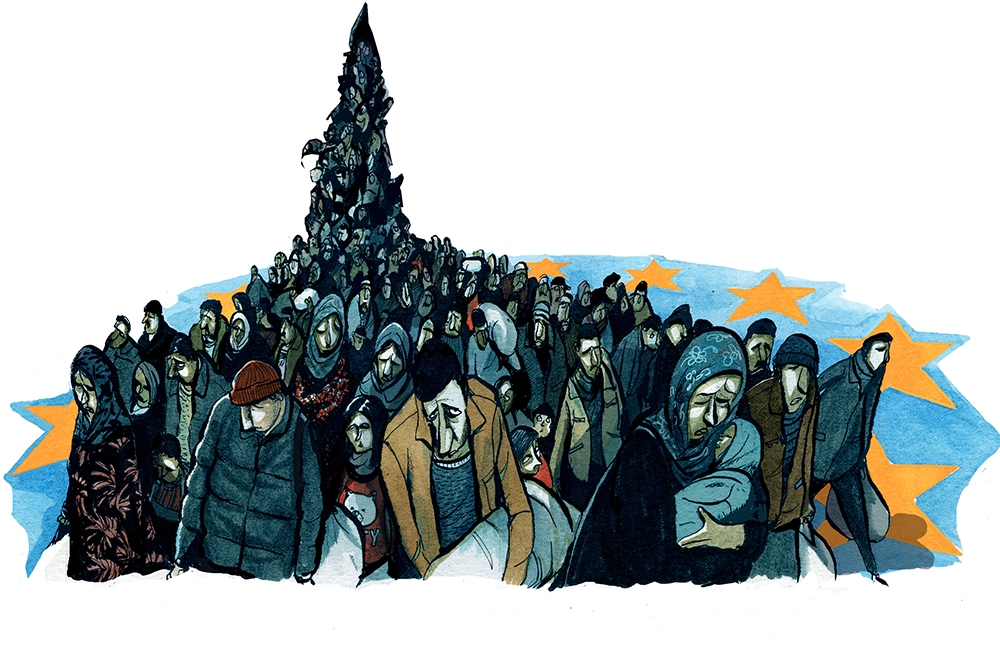The EU spent last November reinforcing its borders as Vladimir Putin directed a wave of refugees through Belarus towards the bloc. This winter, politicians in Brussels are once again preparing for another wave of asylum seekers caused by Putin – Russian men fleeing conscription.
Baltic countries are taking a hard line. Estonian prime minister Kaja Kallas told CNN that ‘every citizen is responsible for their country’s deeds… so we are not giving any asylum.. For Russian men’, while interior minister Lauri Laanemets said asylum ‘would be fundamentally contradictory to the aim of all our sanctions so far, which is the collective responsibility of Russian citizens’. Lithuanian foreign minister Gabrielius Landsbergis described meanwhile ‘draft dodgers’ as ‘simply running from responsibility’, adding that ‘Russians should stay and fight. Against Putin’.
The idea that people do in fact take collective responsibility for the success or failure of their nation is a fascinating change
If Europe carries through on these words, it will represent a remarkable change of tone for the Union. European asylum policy for nearly a decade has been dominated by a single principle: that Europeans, privileged to live in safe, wealthy countries do not have the right to deny that to others desperately seeking it. It is their good fortune to live in the West, and the bad luck of others that their homes do not measure up to that standard. The development of an idea that people do in fact take collective responsibility for the success or failure of their nation – from economic development through to political outcomes – is a fascinating change.
Because young men capable of fighting for a better country aren’t just arriving from Russia. While media attention focuses on women and children, fully 70 per cent of the asylum seekers making the long and dangerous journey to the continent are male, and 50 per cent are between the ages of 18 and 34 – exactly the demographic Europe now believes should stay and fight for their homes.
Notable too is the recognition that granting asylum to large numbers of young men carries risks. Latvian foreign minister Edgars Rinkevics said that humanitarian visas would be denied ‘due to security reasons’. A brief glance at the list of terror attacks in Britain, and the names associated with them – Emad al Swealmeen, Khairi Saadallah, Rachid Redouane, and Ahmed Hassan – speaks to the risks associated with unvetted arrivals in general, let alone when a hostile foreign state is likely to plant agents among those genuinely fleeing the country.
Even without the threat of state-directed terrorism, letting large numbers of young men into your country can have hugely destabilising effects in the longer run, creating a surplus of men displeased with the state of society.
It will be fascinating to see if Europe’s new realisation holds for arrivals from outside the continent. It is relatively easy to say ‘no’ to Russians because we are locked in conflict with their country, and have decided they bear collective responsibility for the actions of their dictator. It may prove harder to say ‘no’ to non-Europeans; a long list of organisations and commentators will be keen to label any shift as conclusive evidence of the bloc’s racism, particularly when contrasted with the warm welcome afforded to Ukrainians.
It may not even hold for Russia; the Finnish border guard and German state are still ready to offer asylum to men fleeing Putin and able to make the journey. And there are some good reasons to do so; if you can filter arrivals – and that is a big ‘if’ – to weed out Putin loyalists, then temporary shelter would deprive Russia of necessary manpower, in much the same way as Zelensky’s pledge of security for surrendering Russian troops. But the fact that Europe is now at least considering the interactions and responsibilities owed between state and citizen is a fascinating shift for the future.







Comments